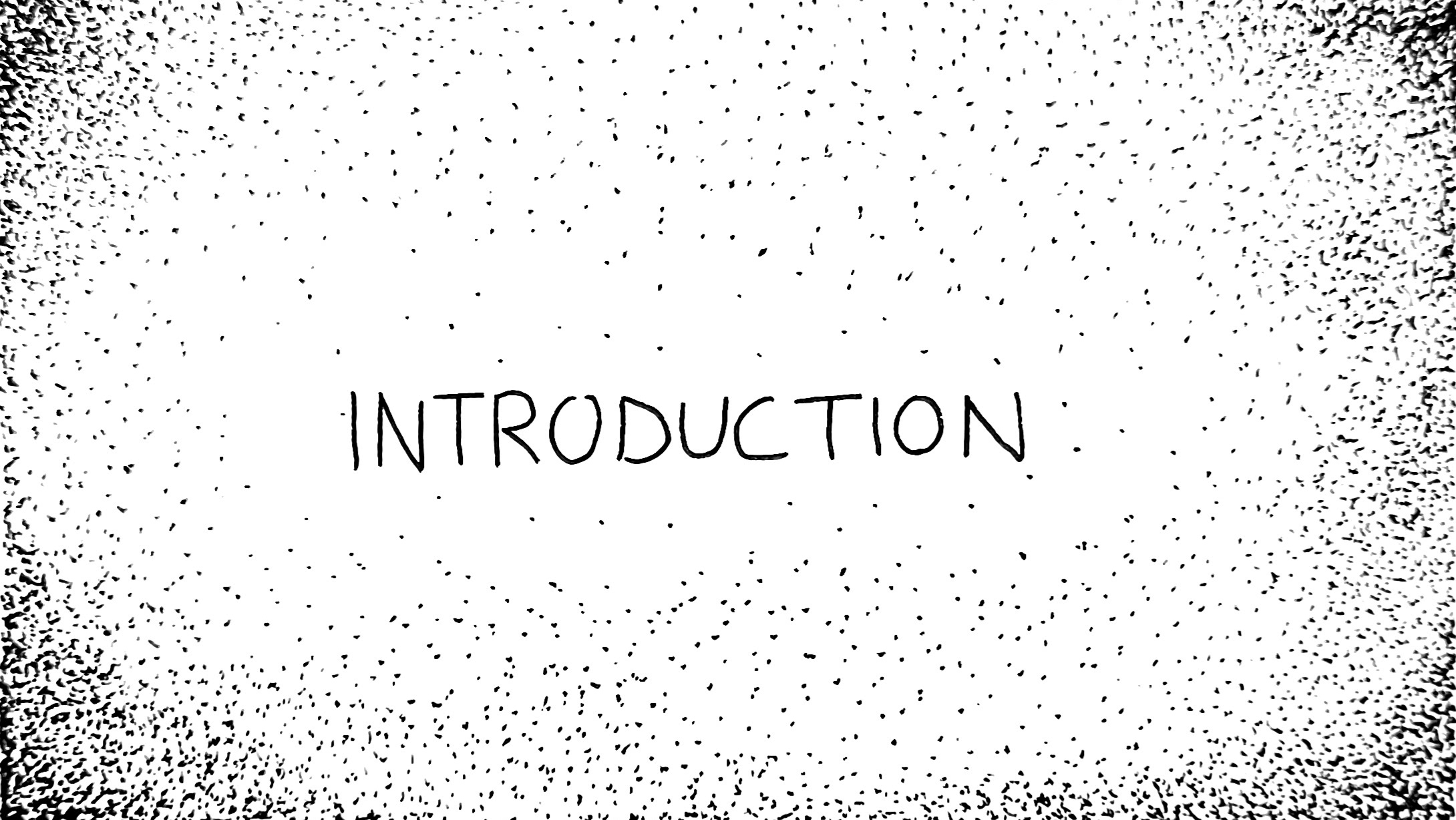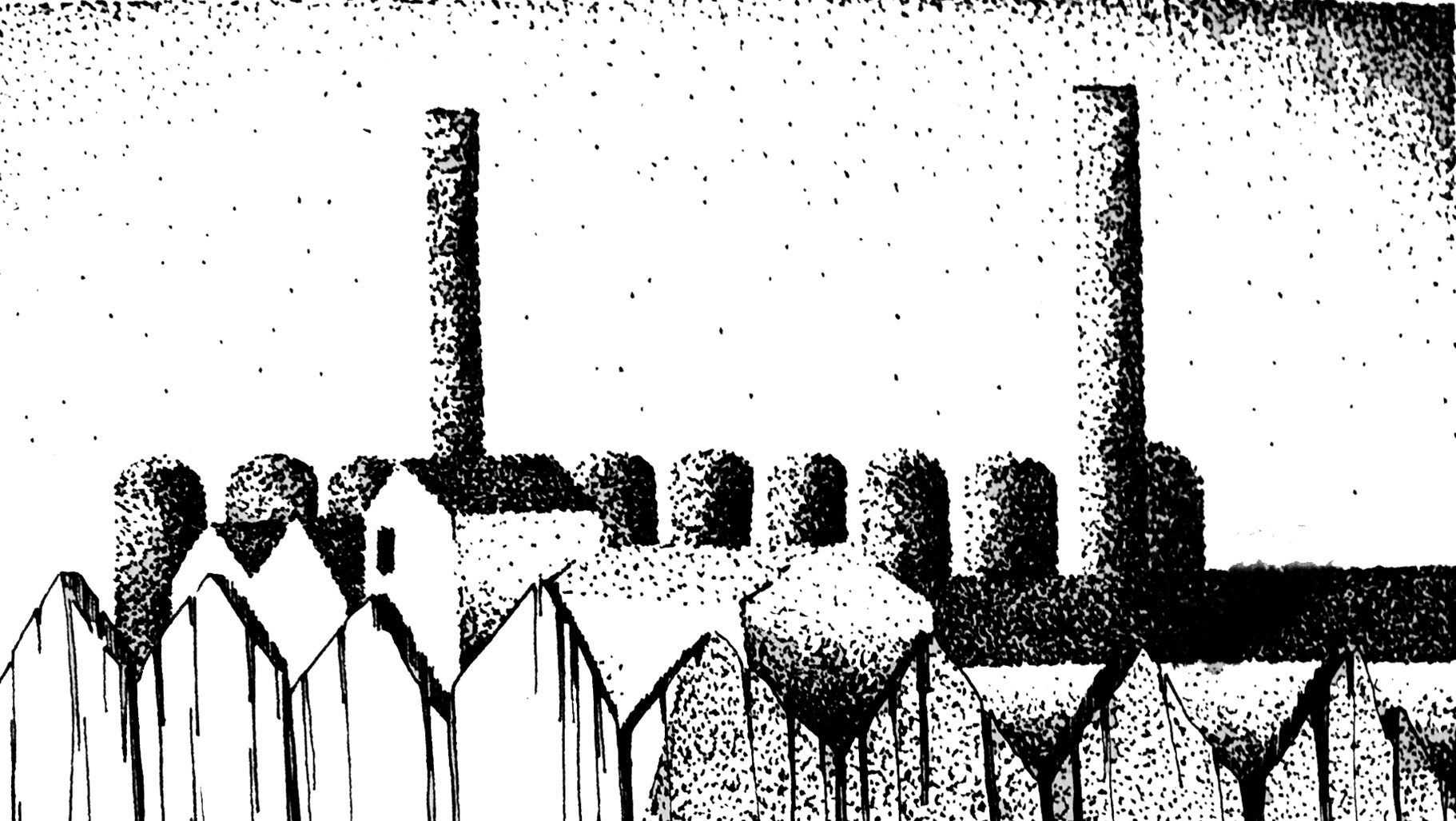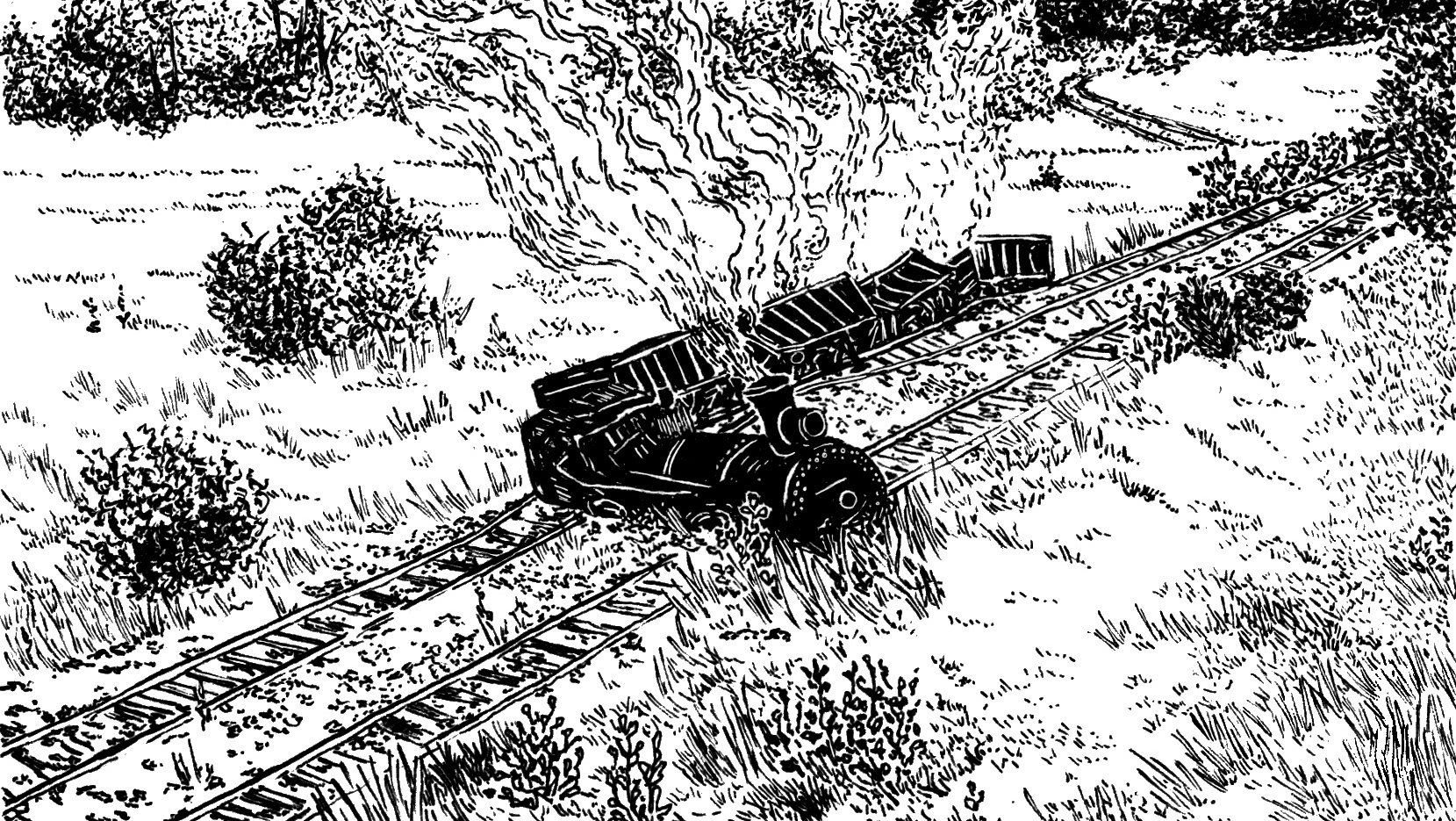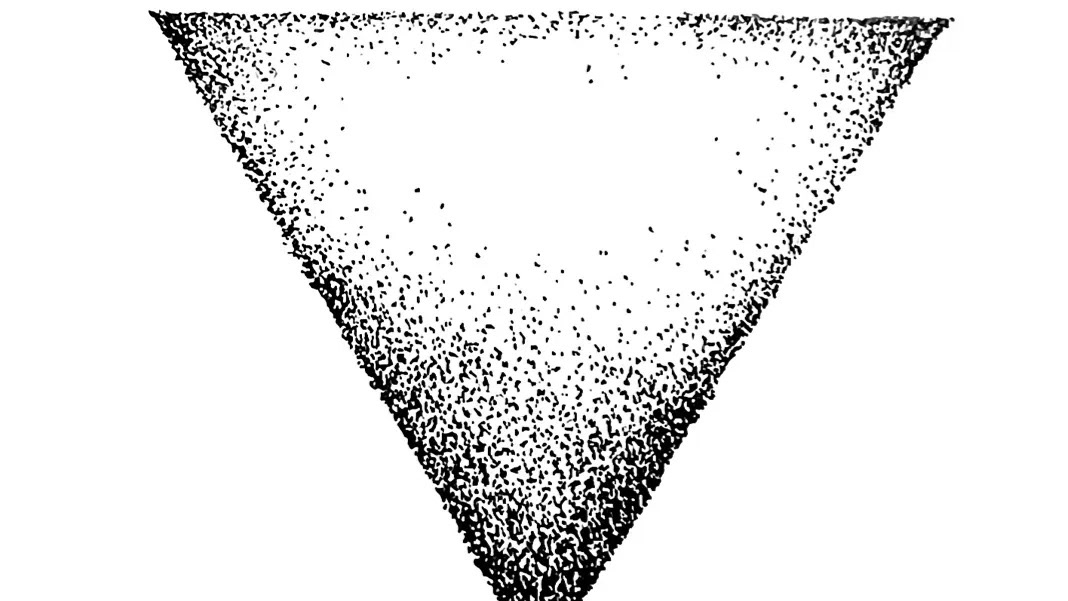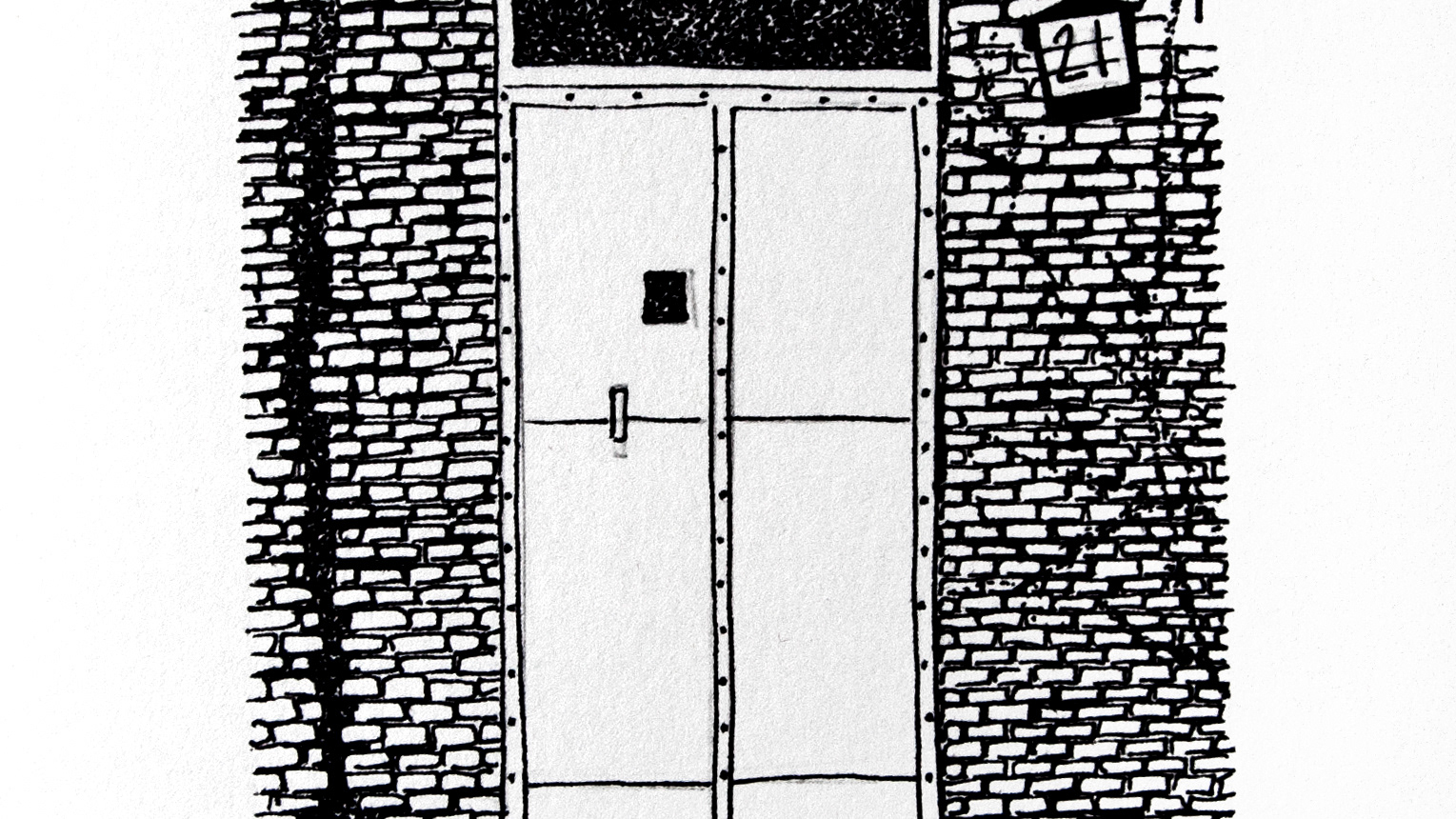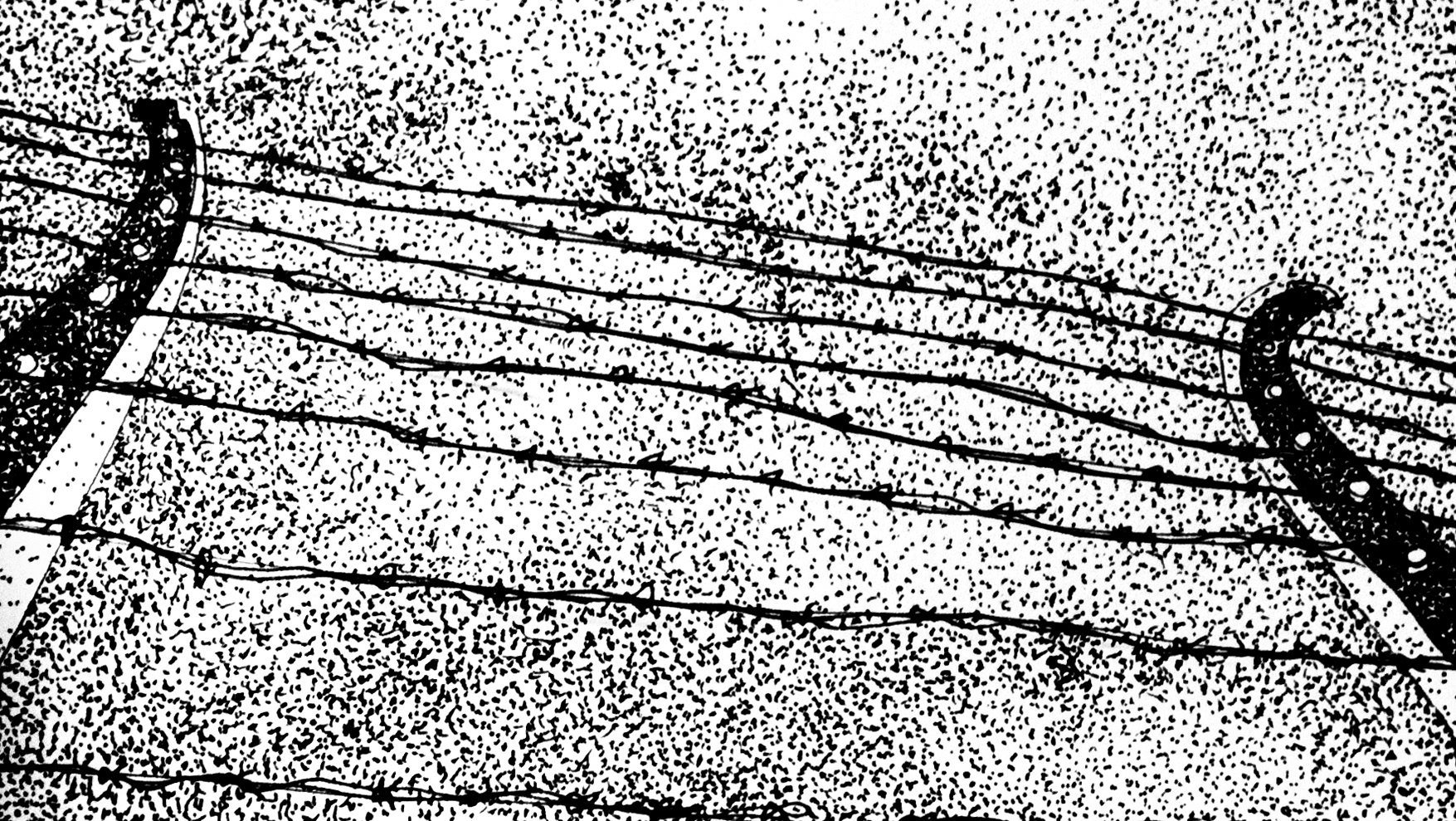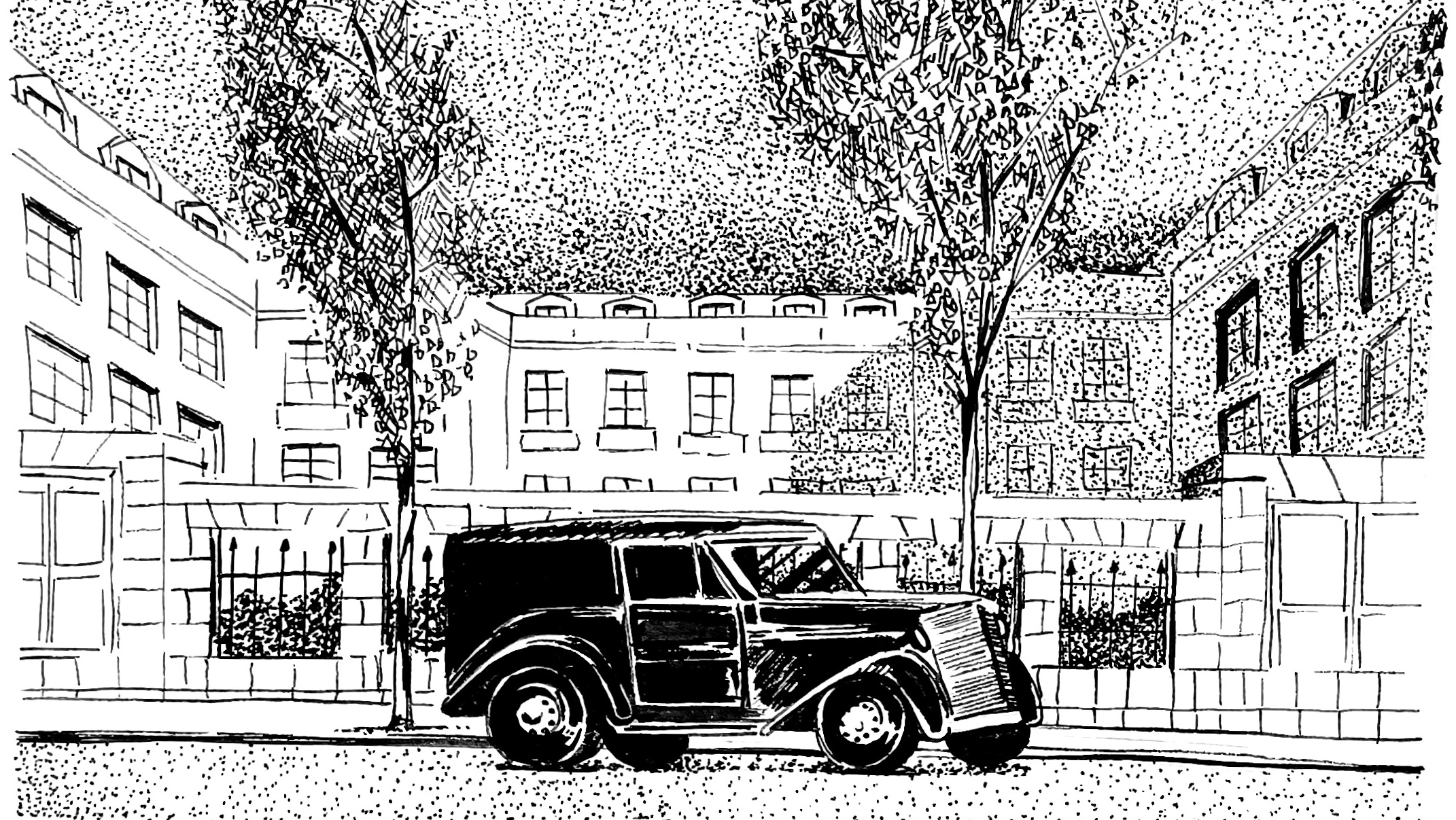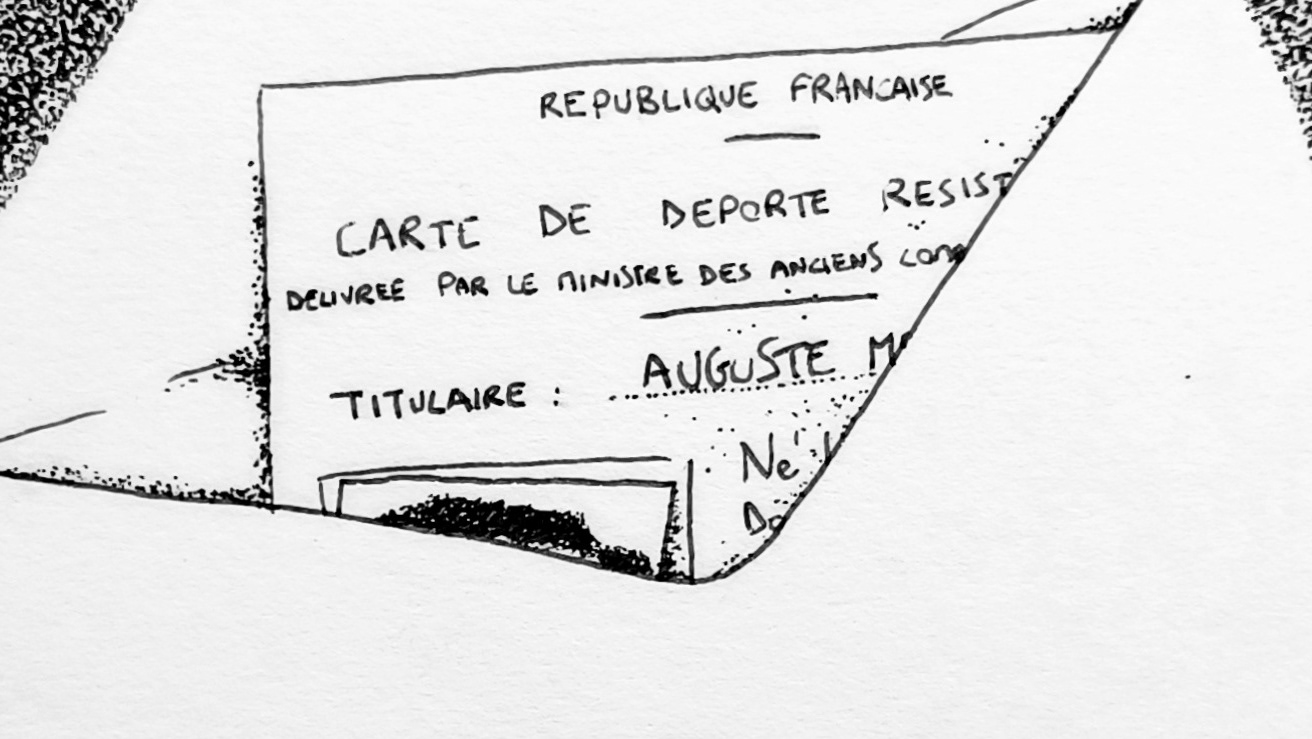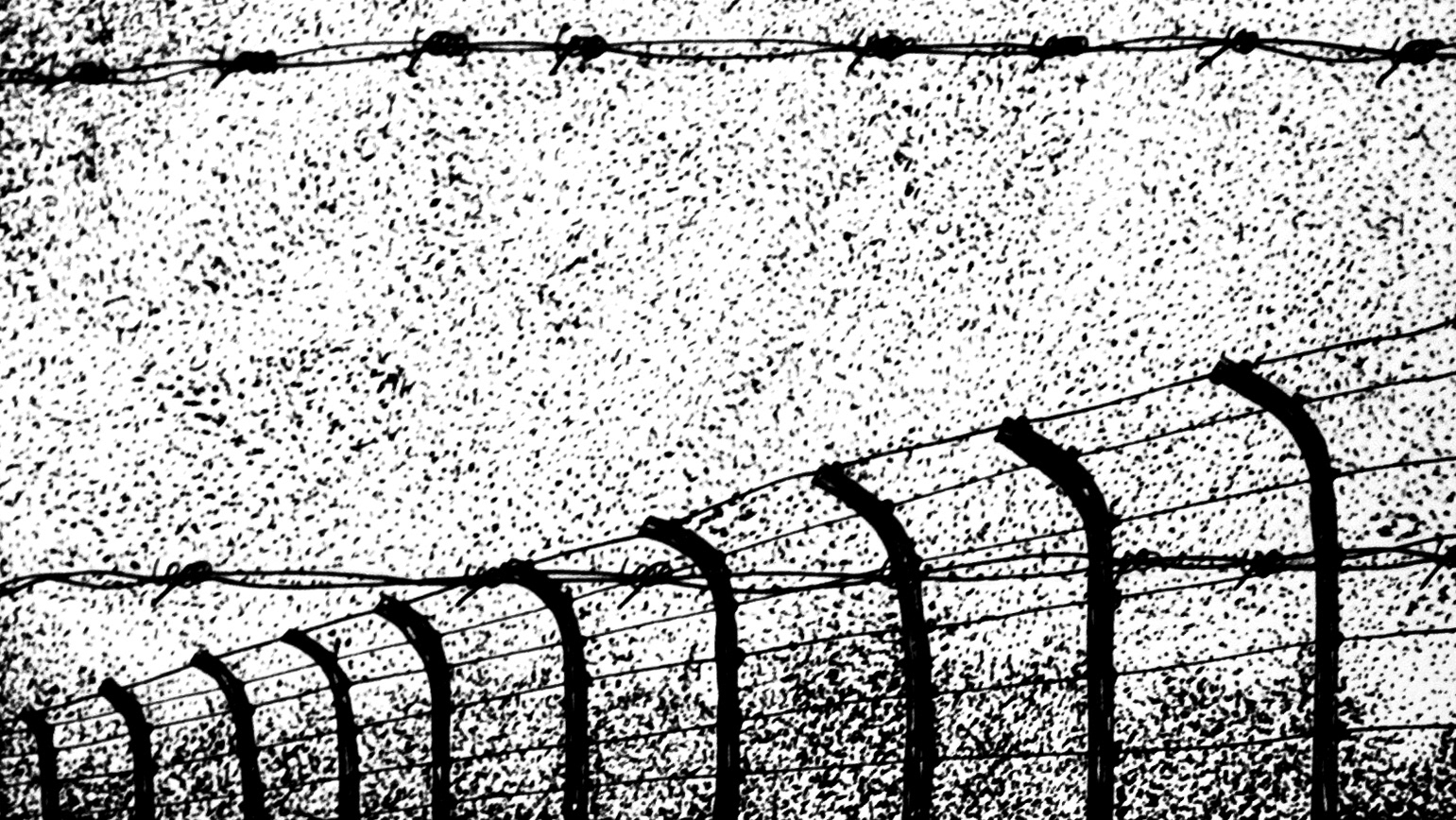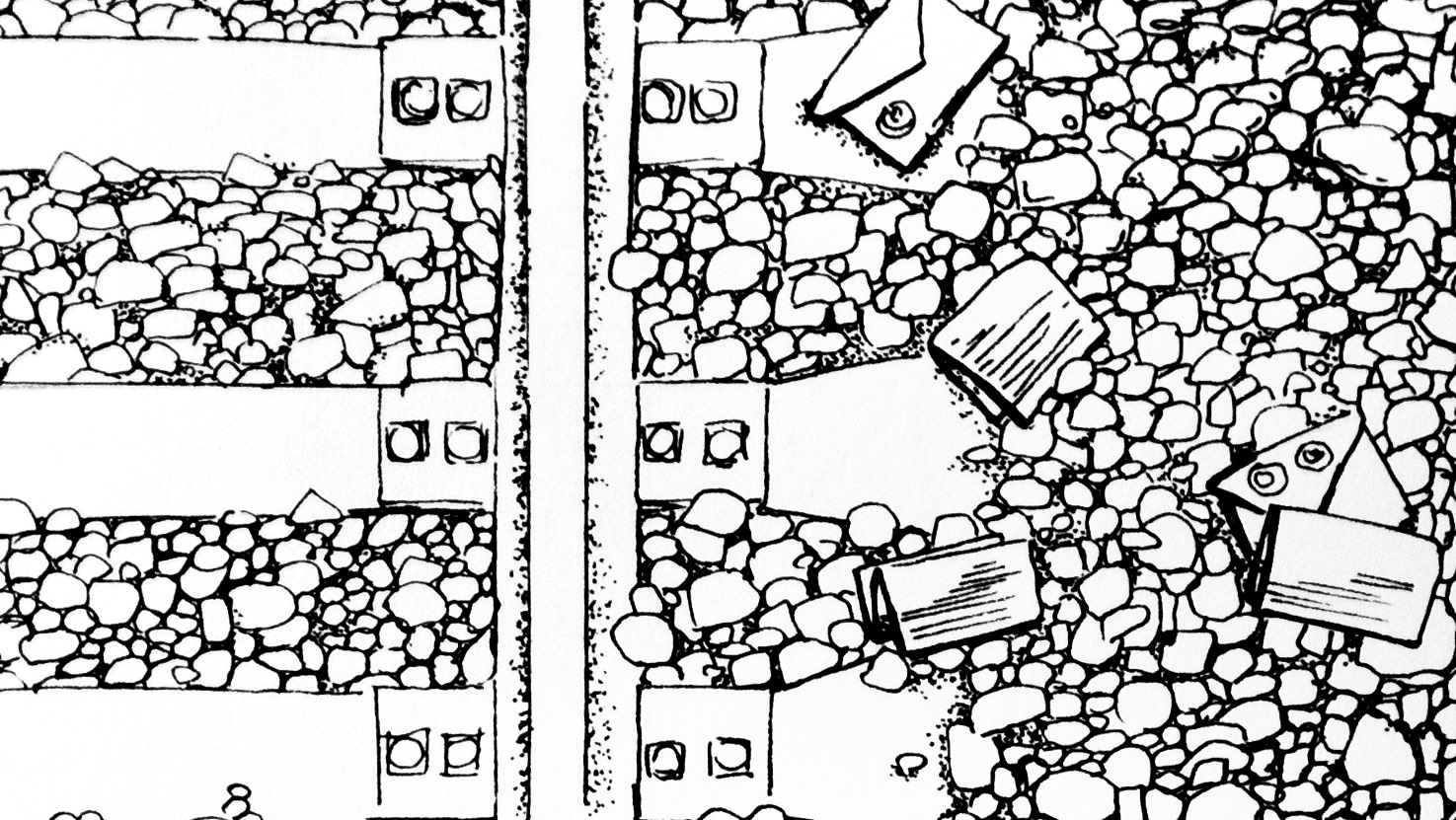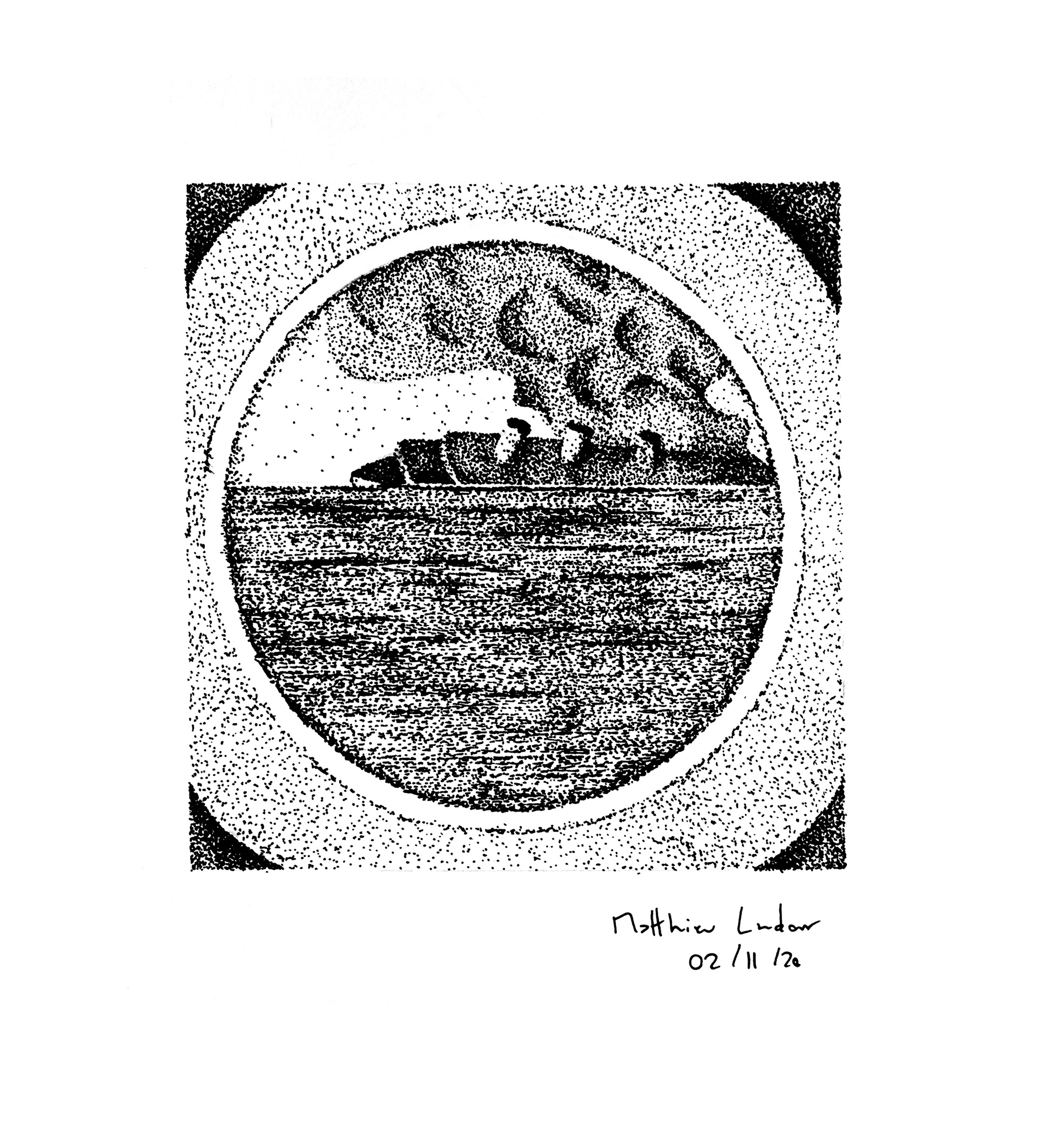
the Arcona
Today is the 3rd of May 1945, and Marcel Cimier looks out of a window.
A boat is sinking, his friends are dying. Marcel can't do anything than watch the disaster.
The cap Arcona boat is sinking in front of him, thousands of people with it, this is an immense tragedy. Marcel Cimier, from the window of another boat, has a lot of trouble registering what is happening.
Back in 1942, on the first of May, Marcel Cimier was arrested by the french and german police, as a hostage. A few weeks before, resistants sabotaged a railing, causing an accident. 30 german soldiers on permission died. When the police came, it was late in the evening, Marcel looked at them from the window of his house.
He shared a cell for a few days with Doctor Pecker and Doktor, both arrested as hostages too, jewish hostages. Quickly, Marcel got to understand how differently and cruelly jewish prisoners were treated.
On the 7th of July, Marcel looked at the german and polish landscape from the small openings of the train leading them East. They didn't know anything about their deportation. As for Marcel, he only knew he had avoided an execution, enough a reason to be optimistic about the whole thing. Better in jail than shot.
His optimism didn't last long. 3 days after their arrival, already confused and terrified by the violence of the place, Marcel witnessed the suicide of a 45000. He threw himself out the 3rd floor window, he had no intention of seeing more of this.
" All those foolish dreams. I can't help having those, my love. Will I only find ruins? Ruins of my loves, of my thoughts. I can see my house. As I left it. My wife, my kids. They cry. I can see you, my love, in our bed, you squeeze my hand, it hurts. My thoughts are here, altogether. In this vision of a first of May. For you all my loves. I write on this dark day. The reality of the past. "
Marcel was selected one day, with a friend. They were waiting in front of the Revier, the queue was long, a SS wanted to shorten it, so he selected some people, it was that quick. Marcel knew exactly what a selection meant, and he still had enough strength to run away. So they waited the right moment with his friend and they ran. Chased by the SS, Marcel and his friend got to an empty block and hid in a small cupboard. The place was filled with doors and windows, they did their best to hide behind them. Oddly and fortunately, with the reflections, they couldn't be seen. The SS looked around and gave up. They waited 4 hours and finally got out, free, saved from darkness by windows.
Marcel survived until the quarantine, he survived the evacuation to Gross Rosen, then another evacuation to Dora-Mittelbau. At this point, they were 17 45000 still together, but Marcel was once again part of another evacuation with Georges Gaudray and Louis Cerceau. Georges had a crazy nickname, the death escaper, because he escaped more selections than any 45000, everyone was convinced he would survive them all.
The evacuations were both a good sign, because it meant the Allies were gaining territory, and a bad sign, as each evacuation was exhausting, deadly.
The SS were behaving erratically. Some of them became almost polite, realising that the war was soon ending, and that they would be judged on their behaviour. Some SS were the opposite, more violent, more inclined to murder, because every prisoner was proof of their inhumanity.
Thousands of prisoners were brought to the Lubeck bay, where boats were awaiting. It was chaos, gigantic scale chaos, boats, military boats, unmarked regular boats filled with prisoners, submarines, … What was to happen to the prisoners was a mystery. Were they about to be freed, exchanged, were they kept on the boats without any afterthought, or were the submarines around to sink the boat and annihilate any evidence?
Marcel was separated from his 2 friends, he went to another boat, Georges and Louis boarded the Cap Arcona.
All of a sudden, the british RAF intervened.
The 45000 witnessed the Second World War from a different angle, the military one. At first, the british planes seemed to attack the military vessels. But soon they targeted the rest, mistaking it for military targets. So they attacked Cap Arcona and 2 other boats. This was a cruise ship, unprotected against military assault, it burnt immediately. The guards locked the doors and left the ship, leaving the prisoners inside, trapped, doomed.
Back to the present, Marcel watches the whole thing from his window. A tragedy. Thousands of people are in those boats, including his friends Louis and Georges.
A miracle happens. The Cap Arcona is about to turn upside down when a hatch opens. Louis and Georges come out of it, followed by hundreds of prisoners. They run on the leaning side of the boat and they jump.
They swim in the frozen sea, they avoid the bullets of the SS who don't want any survivors, they avoid the british attacks who mistake them for german soldiers.
As a friend of Georges Gaudray said, death truly didn't want anything to do with Georges.
On his boat, it turns out the SS are the polite type, hoping to be forgiven for their crimes if they behave correctly a few days before the end. Marcel is exchanged with a couple hundred french prisoners for medicine. The Red cross just saved him, he is no longer a prisoner.
Just like Georges, Marcel has escaped death.
Notes
Thank you for listening to this episode of 31000/45000, the story of 2 trains of french members of the resistance. My name is Matthieu Landour Engel.
This episode was about Marcel Cimier and the Cap Arcona disaster. This episode uses windows to underline the fact that the 45000 and the 31000 are not only survivors, they are also witnesses of the horrors of the Second World War. There were a lot of events Marcel Cimier witnessed,he survived, he unfortunately lost his nephew Roger Pourvendier. He wrote an account of his experience and named it the “incompris” which translates as “the person no one understands”. like many 45000 and 31000, telling their stories, explaining what happened, was an almost impossible task. Just like they couldn’t believe a place like Auschwitz-Birkenau, yet had to, those who listened to them could hardly believe them, and they didn’t have to. It took decades and the work of people like the Klarsfeld couple, Serge and Beate , to get a full extend of the atrocities of the camps. before that, it was common to consider testimonies as mere exaggerations.
I made a few assumptions regarding this story, most notably by assuming that Marcel witnessed most of the events mentioned from a window. It may not be true, but it isn't impossible.
Let me give you a few more informations regarding the death marches. As the Allies were closing on the various nazi concentration camps, the administration decided on the destruction of the evidence, and the prisoners themselves being living evidence of the crimes of the third reich, they were either transferred or murdered. The death marches are a mix of both, those were brutal transfers of starving, weak and ill prisoners, in dreadful conditions, without any food or water. Hundreds of thousands were moved around, sometimes forced to walk, sometimes by open air freezing trains, thousands died.
The Cap Arcona case is an oddly cruel one. First, there is a question mark regarding the presence of the prisoners on those boats, as there are different and opposite testimonies. It is possible that, on Himmler’s orders, a plan was formed to gather as many prisoners as possible on boats and eliminate them by sinking the ships. This would explain the nearby presence of U boats, as well as the decision to remove all lifeboats and life jackets, and finally the orders of shooting all the prisoners who attempted to escape the burning and sinking Cap Arcona. It is also possible that, also on Himmler's orders, the prisoners were to be brought to Sweden, in order to exchange them with medicine. This would explain Marcel Cimier's exchange with the Red Cross. One last possibility was that there was no plan at all, and that, with the Allies' advance, the German army had no idea where to put the prisoners and temporarily boarded them on boats. Nevertheless, the British intervention changed the situation, yet their Intentions are not clear either, and the Lubeck bay archives don't seem unclassified yet . The Royal Air Force targeted both military and unmarked ships, including the Cap Arcona. The Red Cross had apparently warned the allies of the presence of deportees and prisoners on those ships, yet the I formations may not have reached the raf pilots, who targeted the boats, as well as the deportees attempting to flee.
The prisoners were in a tragic situation, swimming away from burning ships and trying to avoid both the German soldiers and the raf .
My sources for this story mostly come from the book Red triangles in Auschwitz, by Claudine Cardon Hamet, le convoi du 24 janvier by Charlotte Delbo, De Caen à Auschwitz, témoignages recueillis et présentés par le Collège Paul Verlaine d'Evrecy, Lycée Malherbe de Caen et l’Association mémoire vive, the website deportes-politiques-auschwitz.fr, memoire vive, the foundation for the memory of deportation website , the Maitron website, and the fantastic website auschwitz.org
Thank you very much for your attention, next episode will be about Simone Alizon.
https://military.wikia.org/wiki/SS_Cap_Arcona_(1927)
